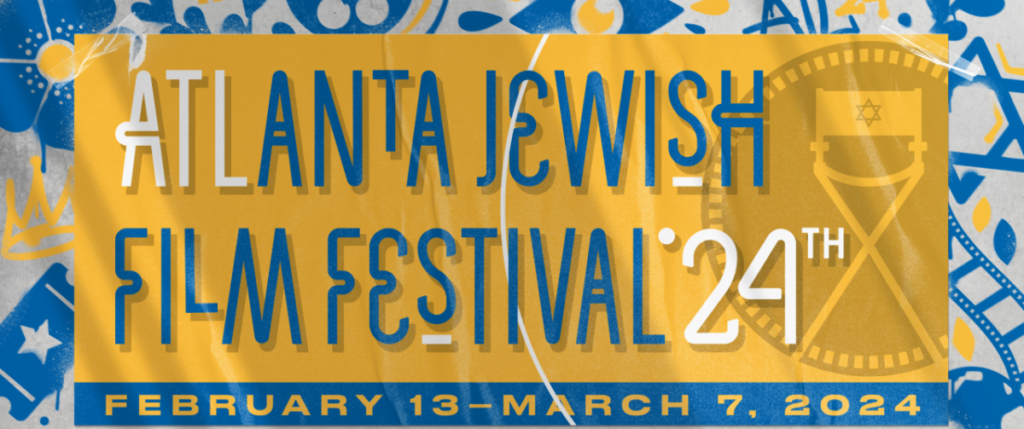Since 2000, the Atlanta Jewish Film Festival has been delivering full-length and short feature and documentary films, as well as documentary features relating Jewish experiences around the world. Each year, relying on feedback from volunteers and audience members, the festival organizers curate a vibrant international program, available in person and via streaming, that, as they note on their website, “fosters stronger bonds within the Jewish community, as well as intergroup relations with Atlanta’s diverse cultural, ethnic, and religious communities.”
This year’s program fully satisfies this desideratum: it takes audiences around the world (from Hungary through India to Israel, Northern California, and Canada) and through the modern history to the present days of the Jewish Diaspora and Israel. Audiences will have the opportunity to learn about Jewish religious traditions, such as mourning, Talmud study, or a wedding celebration; Jewish politics in Europe, America, and the Middle East before and after the establishment of the State of Israel; and the memory and trauma of the Holocaust. The movies also ask questions about race, gender, Jewish defiance of anti-Jewish bias and pay tribute to Jewish performers on stage and film, such as Gene Wilder. Additionally, they pay homage to artists and patrons of the art, such as Judith Alexander. The richly animated documentary feature This World is not My Own tells the story of the collaboration between Alexander, the daughter of a segregationist lawyer’s and the Atlanta-born self-taught, poor, Black folk artist Nellie Mae Rowe, offering insights into Atlanta’s Jewish history as well.
Not only do the festival organizers invite audiences to independent cinemas around the city presenting an exquisite selection of recent productions, but also introduce the movies’ creators to them following the screenings. Q&A sessions are unique opportunities to hear about the creative and technical processes involving actors, directors, and producers leading to the production of the movies in the program.
Those who plan to visit the festival should be prepared to be challenged when deciding which show to watch, for the program is rich and multifaceted. Trailers to all the featured films are available here. Several of the movies featured in past years’ program are available from Emory Libraries, which also offer materials pertaining to the historical, cultural, religious, and legal contexts of the stories the selected movies tell.
-Katalin Rac, PhD, Jewish Studies Librarian

